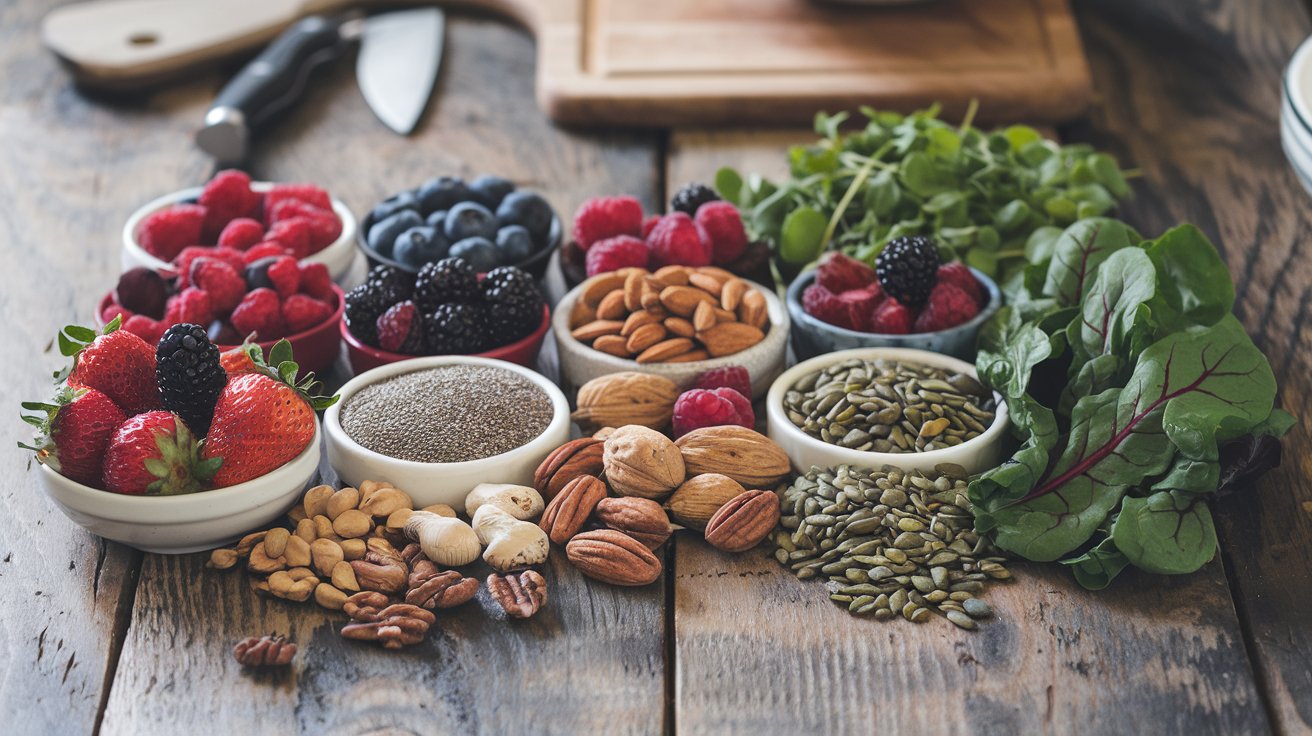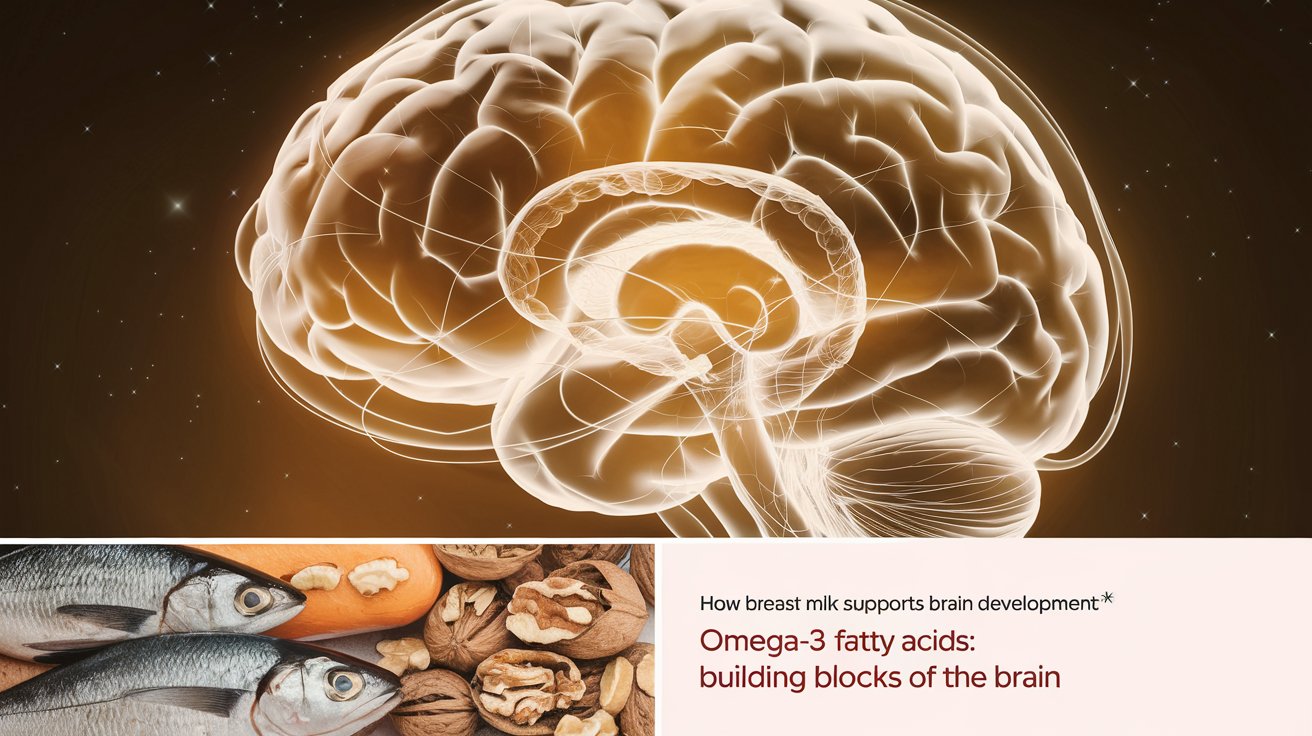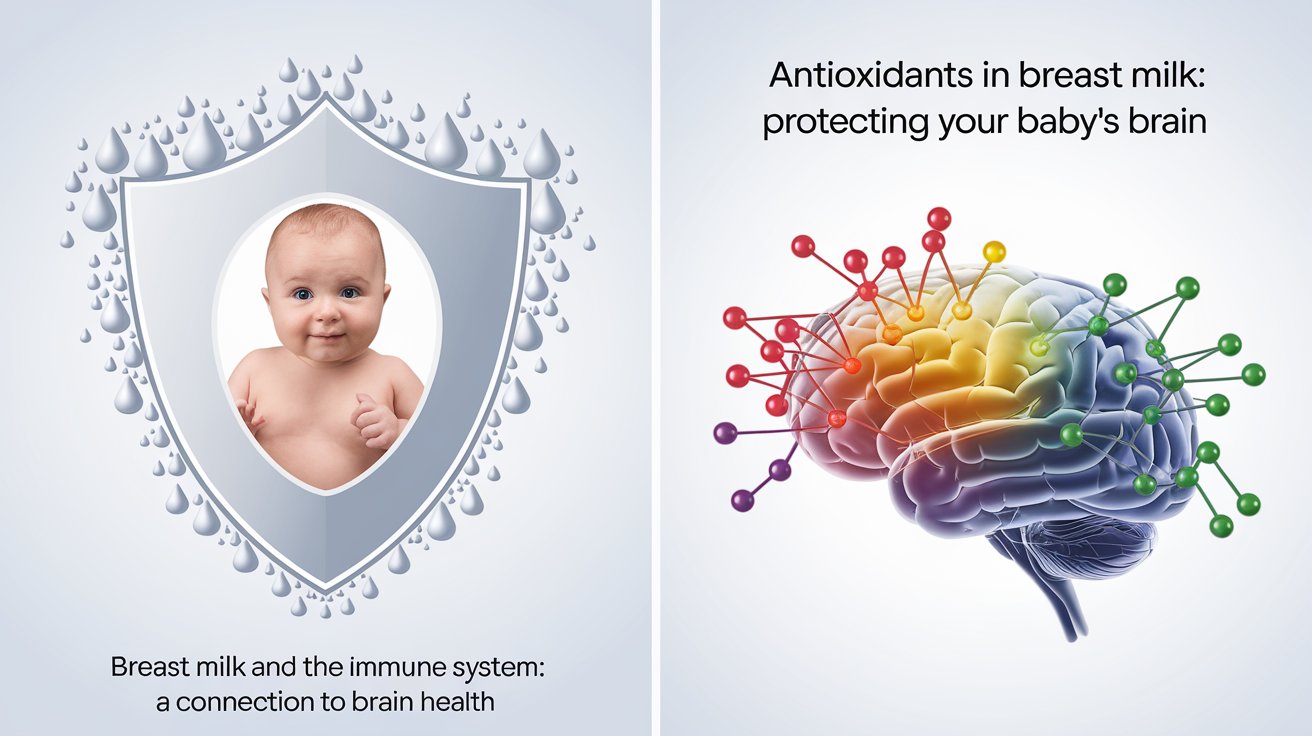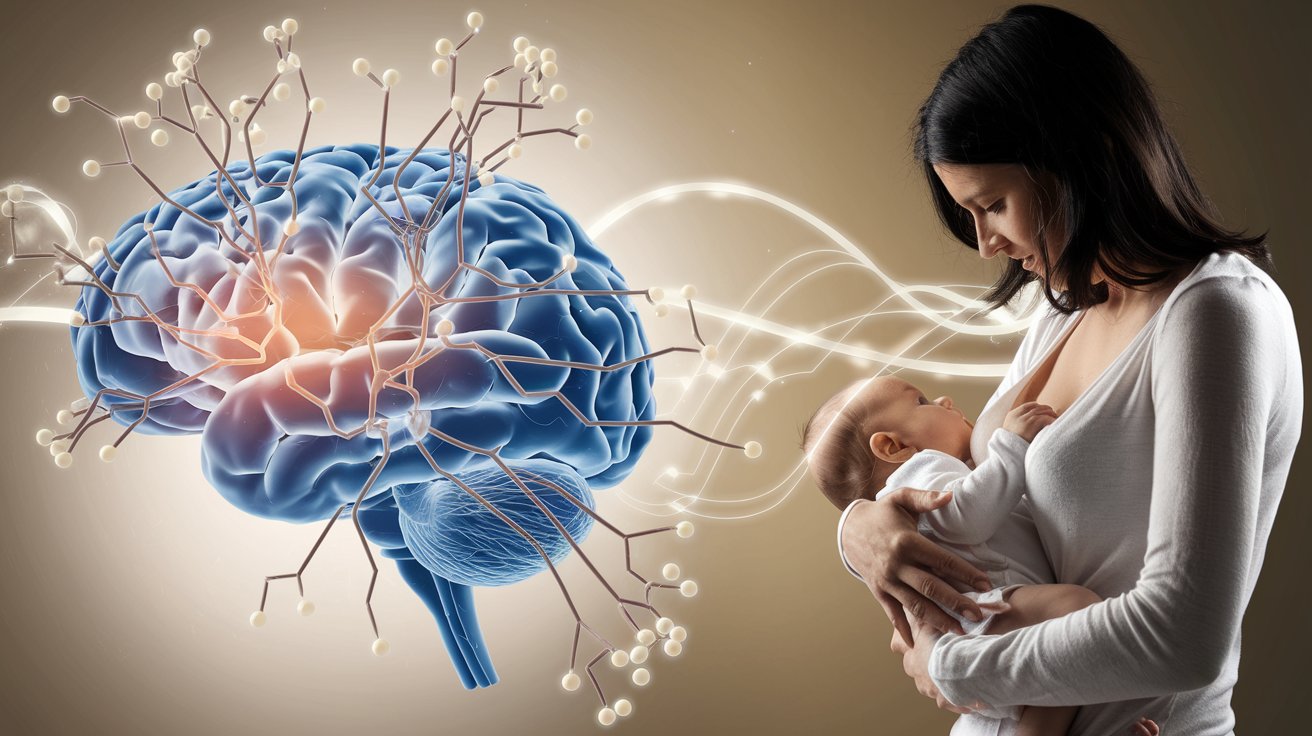

Join the Newsletter
Dive into quick, nutritious recipes, expert health tips, local food finds, and the latest in nutrition. Let’s explore healthier living together!
Why Breast Milk is a Superfood for Your Baby’s Brain Development

Affiliate Disclosure
Before reading this post, please be aware that some links in this article are affiliate links. This means that if you click on one of these links and make a purchase, we may earn a commission at no additional cost to you. We only promote products and services that we believe will be beneficial to our readers.
For more information, please read our full Affiliate Disclosure.
Introduction: The Importance of Breast Milk for Brain Growth
Breast milk isn’t just a source of nourishment—it’s a crucial part of your baby’s brain development. From birth, the nutrients and compounds in breast milk work together to help your baby’s brain grow and thrive. But why exactly is breast milk so essential for brain health? Let’s uncover the unique elements that make it so vital for cognitive development.
What Makes a Food a ‘Superfood’?
We hear the term “superfood” all the time, but what does it really mean?

Defining Superfoods
A superfood refers to a food that is packed with nutrients that offer extensive health benefits, often surpassing the value found in regular foods. These foods help prevent diseases and boost overall well-being.
Key Features of Superfoods
Superfoods are typically rich in vitamins, minerals, antioxidants, and essential fatty acids. They often have higher-than-average concentrations of nutrients that support various body functions, and breast milk fits this profile perfectly for newborns.
Breast Milk: The Ultimate Superfood
Breast milk is often referred to as the gold standard of nutrition for infants, but why is it considered the ultimate superfood?

Nutrient-Rich Composition
Breast milk provides a perfect balance of proteins, fats, carbohydrates, and micronutrients tailored specifically for your baby’s needs. Its nutritional makeup is not static—it evolves as your baby grows, offering customized nutrition at every stage.
A Living Food Source
Unlike formula, breast milk is a living substance. It contains live cells, antibodies, and enzymes that adjust to your baby’s needs, making it far more dynamic and beneficial than any alternative.
How Breast Milk Supports Brain Development
The brain undergoes significant growth and changes during the first few years of life, and breast milk plays a vital role in this process.
Nutrients Essential for Cognitive Development
Breast’s milk contains an array of nutrients essential for building and developing brain tissue. These include omega-3 fatty acids (especially DHA), cholesterol, and specific proteins, all of which contribute to your baby’s cognitive health.
The Role of DHA (Docosahexaenoic Acid)
DHA, a type of omega-3 fatty acid found in high concentrations in breast’s milk, is crucial for the development of your baby’s brain and eyes. DHA helps form brain cells and improves neural connections, leading to better cognitive function later in life.

Omega-3 Fatty Acids: The Building Blocks of the Brain
Omega-3s are the cornerstone of brain development, and breast milk is an excellent natural source of these important fatty acids.
How Omega-3s Aid Brain Growth
Omega-3 fatty acids, particularly DHA, help create and strengthen neural pathways, which are essential for learning, memory, and overall cognitive function.
The Long-Term Impact of Omega-3s on Intelligence
Research shows that babies who receive high amounts of omega-3s from breast milk tend to perform better on cognitive tests as they grow older, with improved memory, problem-solving abilities, and higher IQ scores.
Breast Milk vs. Formula: The Critical Differences
While formula can provide basic nutrition, it can’t replicate the complex and beneficial components found in breast’s milk that are essential for brain development.

What Breast Milk Has That Formula Lacks
Breast milk contains live antibodies, hormones, and beneficial bacteria that formula cannot mimic. These elements are crucial for brain development and overall health.
Nutritional Gaps in Formula
Formula lacks several key brain-boosting ingredients, including live enzymes, immune cells, and the unique fat structure found in breast’s milk. This means formula-fed babies may not experience the same cognitive benefits as breastfed babies.
The Importance of Cholesterol for Brain Health
Cholesterol is often misunderstood, but for babies, it’s a vital component for brain development.
How Cholesterol Aids in Brain Function
Cholesterol helps form the myelin sheath, a protective covering around nerves, which enhances communication between brain cells. It’s essential for learning and memory processes in infants.
Breast Milk’s Ideal Cholesterol Levels
Breast’s milk contains just the right amount of cholesterol, tailored to meet your baby’s developmental needs, ensuring optimal brain growth.
Breast Milk and the Immune System: A Connection to Brain Health
Breast’s milk doesn’t just feed your baby—it also protects them by boosting their immune system, which has a direct impact on brain health.
How Breast Milk Strengthens Immunity
The antibodies and immune cells in breast’s milk help protect your baby from infections and illnesses. By keeping your baby healthy, breast milk indirectly supports brain development, allowing the brain to grow without interruptions from illness.

The Gut-Brain Axis and Breast Milk
The gut-brain connection is well-documented, and breast milk plays a vital role in establishing a healthy gut. A well-functioning gut supports cognitive health and emotional well-being.
Antioxidants in Breast Milk: Protecting Your Baby’s Brain
Breast milk is rich in antioxidants, which play a critical role in protecting your baby’s brain from damage.
The Role of Antioxidants in Brain Development
Antioxidants neutralize harmful free radicals, which can damage developing brain cells. By offering antioxidant protection, breast milk helps ensure that your baby’s brain remains healthy and continues to grow without obstacles.
Breast Milk: A Natural Antioxidant Source
Breast milk naturally contains high levels of antioxidants like vitamin E and other compounds that help safeguard your baby’s brain from oxidative stress.
The Protein Power of Breast Milk for Cognitive Function
Proteins are essential for brain development, and breast milk provides a rich source of highly absorbable proteins.
Why Proteins Are Important for the Brain
The proteins found in breast milk are crucial for producing neurotransmitters, the chemicals that allow brain cells to communicate with each other, fostering learning and memory.

Highly Absorbable Proteins in Breast’s Milk
The proteins in breast’s milk are highly bioavailable, meaning your baby can easily absorb and utilize them, ensuring they get the most out of this crucial nutrient for brain development.
Breast Milk Hormones and Emotional Development
Breast’s milk contains important hormones like oxytocin, which support not only physical but also emotional development.
How Hormones Aid Cognitive and Emotional Growth
Hormones in breast’s milk, such as oxytocin, regulate your baby’s mood and help reduce stress, contributing to both emotional and brain development.
The Long-Term Impact of Early Nutrition on Brain Health
The nutrition your baby receives in the first few years of life has a long-lasting impact on their brain function and cognitive abilities.
Critical Stages of Brain Growth
The initial three years of life are characterized by a period of swift brain development. Breastfeeding during this time provides essential nutrients that set the foundation for future cognitive abilities.
The Lifelong Benefits of Breastfeeding
Studies have shown that breastfed babies tend to have better cognitive abilities later in life, including improved memory, problem-solving skills, and overall IQ.
Breastfeeding and Emotional Bonding: How It Benefits the Brain
Breastfeeding isn’t just about physical nourishment—it also provides emotional benefits that are crucial for brain development.
The Emotional Impact of Breastfeeding
Breastfeeding promotes skin-to-skin contact, which triggers the release of oxytocin, the “love hormone.” This hormone strengthens the bond between mother and baby, helping your child feel safe and secure.

Hormonal Effects on Emotional and Cognitive Development
Oxytocin plays a dual role, supporting both emotional bonding and brain development, which helps create a stable, nurturing environment for your baby to thrive.
Maximizing the Brain-Boosting Benefits of Breastfeeding
To get the most out of breastfeeding, consider these tips.
Best Practices for Breastfeeding Mothers
Your own nutrition is crucial for the quality of your breast’s milk. Eating a healthy, well-balanced diet and staying hydrated will ensure that your baby gets all the nutrients they need.
How Long Should You Breastfeed for Brain Development?
For optimal brain development, exclusive breastfeeding is recommended for the first six months, with continued breastfeeding alongside complementary foods for up to two years or longer.
Conclusion: Breast Milk is the Ultimate Brain-Boosting Superfood
Breast’s milk offers unparalleled benefits for your baby’s brain development. It is packed with essential nutrients, antibodies, and hormones that not only support cognitive growth but also foster emotional bonding and psychological well-being. By breastfeeding, you’re providing your baby with the best possible start in life, helping them build a strong foundation for lifelong health and intelligence.

Don’t miss out! Read this post to get all the details on how to Blend It Like a Pro: 5 Smoothie Recipes That Will Boost Your Energy Levels!
FAQs
- What nutrients in breast‘s milk are essential for brain development?
Breast’s milk contains essential omega-3 fatty acids, proteins, cholesterol, and antioxidants, which are crucial for cognitive development. - How long should I breastfeed to support brain growth?
Exclusive breastfeeding is recommended for the first six months, followed by continued breastfeeding for up to two years or more to maximize brain development. - Is formula just as good as breast milk for brain development?
While formula can provide basic nutrition, it lacks the live antibodies, hormones, and unique compounds found in breast’s milk that are essential for optimal brain growth. - How do antioxidants in breast milk support brain health?
Antioxidants in breast milk help protect developing brain cells from damage, ensuring that your baby’s brain grows healthily and efficiently. - Can breastfeeding affect emotional development as well?
Yes, breastfeeding promotes emotional bonding and reduces stress for your baby, which is crucial for both emotional and brain development.

Welcome to Merge Blog!
Dive into quick, nutritious recipes, expert health tips, local food finds, and the latest in nutrition. Let’s explore healthier living together!

I’m Divya Bharathi, the person behind MergeBlog. I’m a passionate food enthusiast sharing simple, nutritious recipes and tips for a balanced lifestyle. Join me on this delicious journey!
Divya Bharathi
SUBSCRIBE & FOLLOW
MUST-READ ARTICLES
Join the Newsletter
Dive into quick, nutritious recipes, expert health tips, local food finds, and the latest in nutrition. Let’s explore healthier living together!



